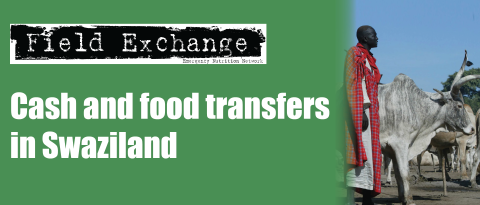New WFP Food Security Analysis guidelines

A set of new Food Security analysis guidelines, which include all latest methodological progress made by the World Food Programme (WFP) in the last years, is now available.
This has been developed under the guidance of leading food security experts from academia, research institutes, nongovernmental organisations (NGOs) and partners, and drawing on years of field experience. It includes an updated, second edition of the Emergency Food Security Assessment (EFSA) Handbook, a first edition of the Comprehensive Food Security and Vulnerability Analysis (CFSVA) Guidelines, as well as Technical Guidance Sheets that cover specific aspects of food security and market analysis.
WFP has also revised the Crop and Food Security Assessment Missions Guidelines (CFSAM) in collaboration with the Food and Agriculture Organisation of the United Nations (FAO), and the Joint Assessment Missions (JAM) Guidelines with the Office of the United Nations High Commissioner for Refugees (UNHCR).
These guidelines and handbook define WFP's approaches to food security analysis. They are meant to strengthen and standardise food security and vulnerability analyses, allowing for comparisons across countries and over time. They will assist food security analysts in conducting refined analyses and to facilitate a better understanding of increasingly complex food security situations. They include the methodological progress made by WFP under the Strengthening Emergency Needs Assessment Capacity (SENAC) project, in particular on market analysis, measurement of food insecurity, and understanding the link food security and nutrition analysis1.
All the latest guidance materials are available at www.wfp.org/food-security/guidelines.
A brochure with a DVD encompassing all the guidelines is also available.
For further information, contact Jan Delbaere, WFP Food Security Analysis Service, email: jan.delbaere@wfp.org. For a copy of the DVD, contact caroline.chaumont@wfp.org
1This project and complementary projects received the financial support of ECHO, DFID, The Citigroup Foundation, Germany, France, Canada, Belgium, Denmark, he Gates Foundation.
Imported from FEX website


